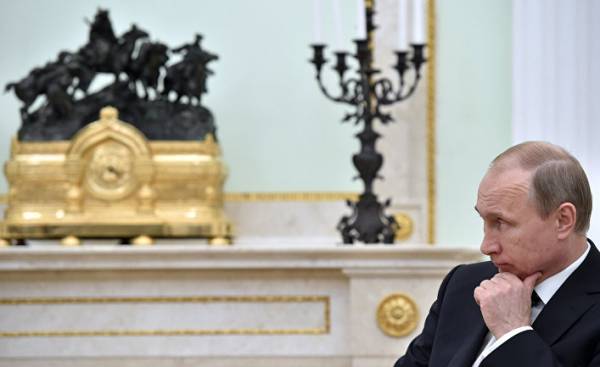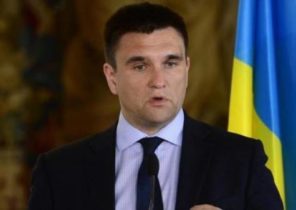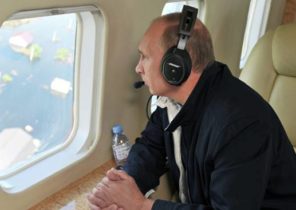
The vast majority of Americans can not be called fans of Russian President Vladimir Putin, however, despite the debugged work of the anti-machine in Washington, his approval rating among Americans has increased almost two times, as evidenced by the results of a survey of the Gallup Institute published on 21 February. These survey results contrast sharply with the views of many Republicans, primarily Senator John McCain (John McCain), who in his recent speech in Germany, criticized the desire of the President of trump to establish relations with the Kremlin. McCain and his colleague Lindsey Graham (Lindsey Graham) and a small group of businessmen who in the past worked in Russia, led the public campaign against the restoration of relations with Russia.
The Institute Gallup announced that now 22% of Americans have a positive attitude to Putin, while in 2015 their share was only 13%. The negative Putin’s approval rating among Americans has remained the same — 72%. However, the approval rating of the Russian leader among Republicans has increased significantly over the past two years: in 2015, only 12% of Republicans reacted positively to Putin and now their share has increased to 32%. For comparison, now positive attitude to Putin only 10% of Democrats, whereas in 2015, they were 15%. The growth of Putin’s rating is observed among independent respondents: in the two years it has grown from 12% to 23%.
This survey is part of a massive study of the state of Affairs in the world, which was conducted by Gallup from 1 to 5 February. In the two years that have passed since the last assessment of the level of popularity of Putin, Russia intervened in the Syrian conflict to strengthen the regime in Syria, and became the main figurant of the scandal surrounding the hacking attacks on the servers of the national Committee of the Democratic party.
No wonder Putin’s approval rating among Democrats has declined. Hillary Clinton has accused Russia of promulgation of compromising emails. Emails of the head of her election headquarters were also stolen and published on the Wikileaks website. Wikileaks founder Julian Assange (Julian Assange) says that he received these letters are not from the Russian government, but he refuses to name the sources of these documents. Later, the Clinton camp has accused Russia of spreading “fake news” about her campaign that allegedly contributed to the victory of Donald trump in US elections. During a direct vote, Clinton gained 2 million more votes than trump.
Trump recently said that it is much wiser to cooperate with Russia in matters relating to international security than threaten it and see it as the enemy. The survey You.Gov conducted last week, showed that 22% of Americans consider Russia an enemy of the United States.
The negative attitude of Americans toward Putin is a relatively new phenomenon, mainly due to the nature of the American election campaign, during which Democrats have tried to present Russia as the main villain. Putin was also accused that he had influenced the vote on Brazito, and now he is accused of helping ultra-right candidates in Europe, whose rating continues to grow in the Netherlands, in France and even in Germany.
In 2002 when the Gallup first started asking questions about Putin during his first term, 41% of Americans stated their positive attitude to the Russian leader, 18% of Americans admitted in their negative attitude to it, and 41% of respondents said that they generally don’t know or can’t determine the answer. In 2013, when Putin has returned to the presidency for a third term, Gallup once again turned to this subject, and the percentage of Americans negative attitude to the Russian leader, was much higher than the percentage of those who treated him with sympathy, despite the fact that Russia then has rarely appeared in the news.
Russia began to appear regularly in the news and the headlines in February 2014 when the Euromaidan revolution in Ukraine has resulted in the overthrow of Viktor Yanukovych, Pro-Russian President who refused to sign the Association agreement with the European Union. The Ukrainians said that Yanukovych was acting on the orders of Putin, and not in the interests of Ukraine. Intercepted telephone conversations between high-ranking state Department official and us Ambassador to Ukraine showed that Washington is interested in the fact that the head of the country had a new leader, Arseniy Yatsenyuk. When Yatsenyuk was elected the new Prime Minister, Russia immediately began working with the ethnic Russian living in Crimea, and by the middle of March there was held a referendum on the secession of the Peninsula from Ukraine. 48 hours after the vote, Russia annexed the Crimea and, thus, retain its only warm-water seaport in the Black sea. The UN, the US and the European Commission called the annexation illegal seizure of territories, after which Washington and Brussels have imposed sanctions against Russia.
Soon after that Russia decided to support the Syrian dictator Bashar al-Assad, lest he become the next victim of regime change. Since then, Russia has come to be treated negatively.
American attitudes toward Russia, about the same as their attitude to Putin: 28% of respondents have a positive attitude towards Russia, while 70% — in the negative. The proportion of Americans with a positive attitude to Russia remains unchanged from last year and amounted to 30%, while in 2015 their share was equal to 24% — according to Gallup, this was the lowest rating of Russia.
A more friendly approach trump Putin is helping the Republicans to reassess their attitude to the former KGB agent. Meanwhile, the Democrats are frustrated due to the fact that they have Putin associated with the defeat of Clinton.
Oddly enough, but Russia is a perfect dichotomy of the two American political parties. Since Russia experienced its heyday as a Communist country, in the ideological sense it is quite close to the left wing of the Democratic party. However, Putin’s autocratic style is very close to the right wing of the Republican party. Gallup experts think that 2017 could be a pivotal in determining whether the United States to reach agreement with Russia, and whether a small increase in Putin’s rating is a short-term phenomenon or evidence of increasing positive evaluations in the future.
John McCain will continue to insist that Russia should not expect anything good. Most believe him, judging by the polls You.Gov and Gallup. However, more and more members of his own party, McCain’s lean towards the view of the trump when it comes to Russia.
Wall Street is also leaning on its side. Last year, investment in Russia has brought more profit than investment in any other major market. Over the past 12 months, the Fund RSXJ the new York investment firm Van Eck Global has grown by 135%.







